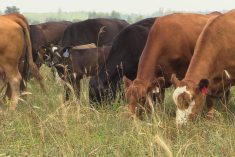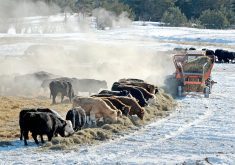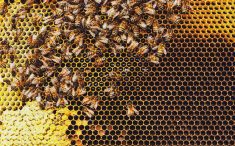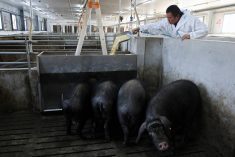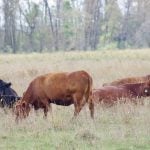When the Manitoba Stampede and Exhibition holds its 46th annual rodeo in Morris through this weekend, one group that won’t be cheering for the cowboys is a Vancouver-based animal welfare organization opposed to one of its main events: calf roping.
The Vancouver Humane Society is campaigning to ban calf roping (also called tie-down roping) from rodeos across Canada.
VHS is not specifically targeting the Morris stampede, as it did the Calgary Stampede the previous week with advertisements in the Globe and Mail and other media. But the society is encouraging all rodeos in Canada to eliminate calf roping from its programs, said Peter Fricker, VHS projects and communications director in Vancouver.
Read Also
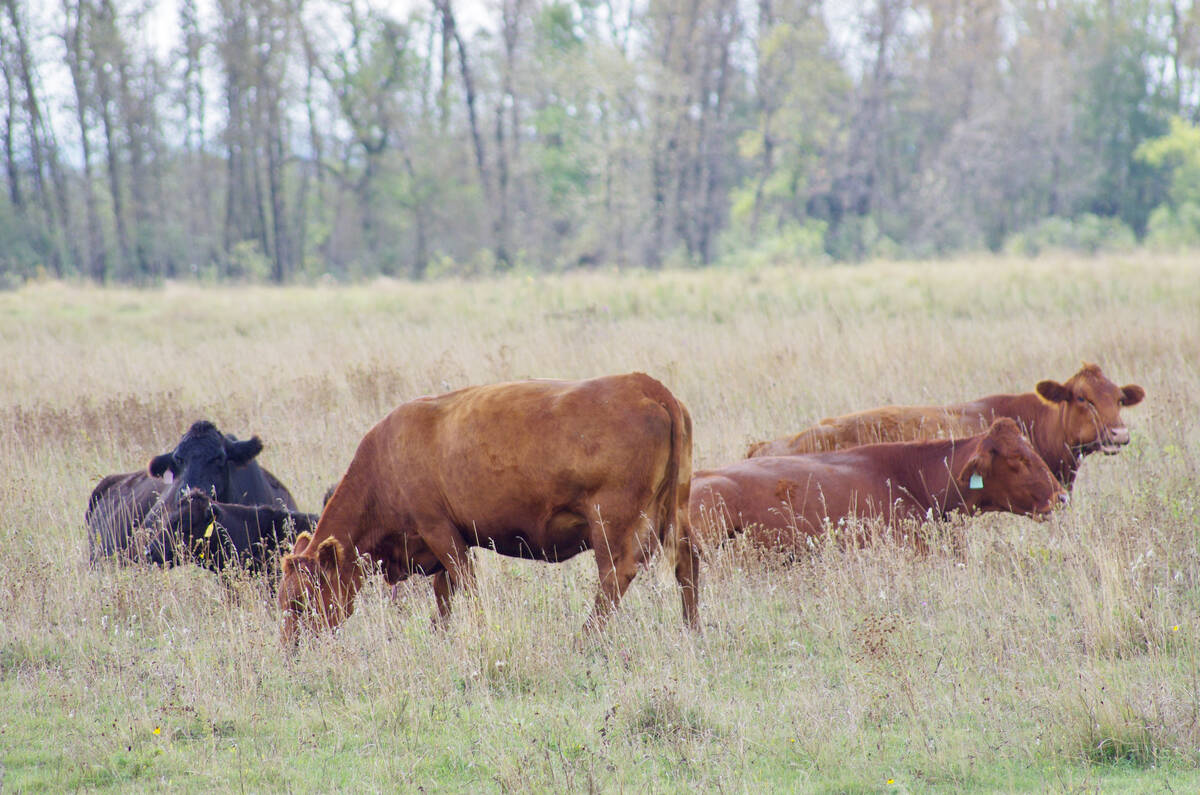
Trump signs proclamation increasing Argentine beef imports
U.S. President Donald Trump on Friday signed a proclamation to hike the country’s low-tariff imports of Argentine beef, though economists have said the attempt to lower costs for American consumers will likely have little impact on prices.
The organization calls calf roping “a cruel spectacle of animal abuse” which allegedly creates unnecessary fear and pain in calves only a few months old.
But rodeo officials say the event is governed by strict rules and closely monitored to ensure animal welfare.
“We police ourselves quite well, in my mind,” said Jim Pippolo, rodeo administrator for the Canadian Professional Rodeo Association in Calgary.
VHS received a boost to its anti-calf roping campaign two years ago. The Cloverdale Rodeo in Surrey, B.C., under pressure from the society and other animal welfare groups, eliminated several major events, including calf roping, from its program after a calf was injured in the ring and had to be euthanized.
Pippolo said such incidents are rare. During CPRA’s entire 2008 rodeo circuit, injuries occurred in 0.5 per cent of the roughly 15,000 events held, he said.
Pippolo was at the Cloverdale Rodeo when the event occurred. He said the roper involved was fined and suspended.
He said calves in tie-down events are “preconditioned” — practised on at least three times so they know what to expect. If an animal is jerked over backwards after being roped (called “jerk down”), the roper receives a time penalty. In an event in which winners are decided by tenths of a second, competitors must be careful to avoid penalties, Pippolo said.
He said calf roping is still practised on ranches, it’s a standard management technique and therefore a legitimate competitive event.
But Fricker said calf roping on a ranch does not involve time pressure and extreme stress to the animal, as tie-down in a rodeo ring does.
He said the Cloverdale Rodeo hasn’t suffered by dropping the event after 2007. In fact, it attracted record crowds in 2008 and 2008, VHS says on its website.
“Generally booed”
The VHS campaign didn’t exactly receive a warm welcome at the Calgary Stampede. Most local media refused to run its advertisements. Even the local humane society did not endorse the campaign.
But Fricker insisted certain events, such as calf roping, steer wrestling, bull riding and chuckwagon racing, are unnecessary at rodeos because they’re either inhumane or not part of traditional Western on-farm culture.
Tim Lewis, Manitoba Stampede and Exhibition president, said the Morris rodeo has seen animal rights activists in the past but not lately.
When demonstrators walked out in front of the grandstand crowd with their placards, they “generally got booed,” he said.
The vast majority of people who attend rodeos are knowledgeable about the sport and not sympathetic to protesters, Lewis said.
“If they come to a rodeo, they know what to expect,” he said. “Right now, we haven’t seen it as a huge issue,”
The Morris stampede ranks among the top 12 of the 62 CPRA-sanctioned rodeos in Canada.



